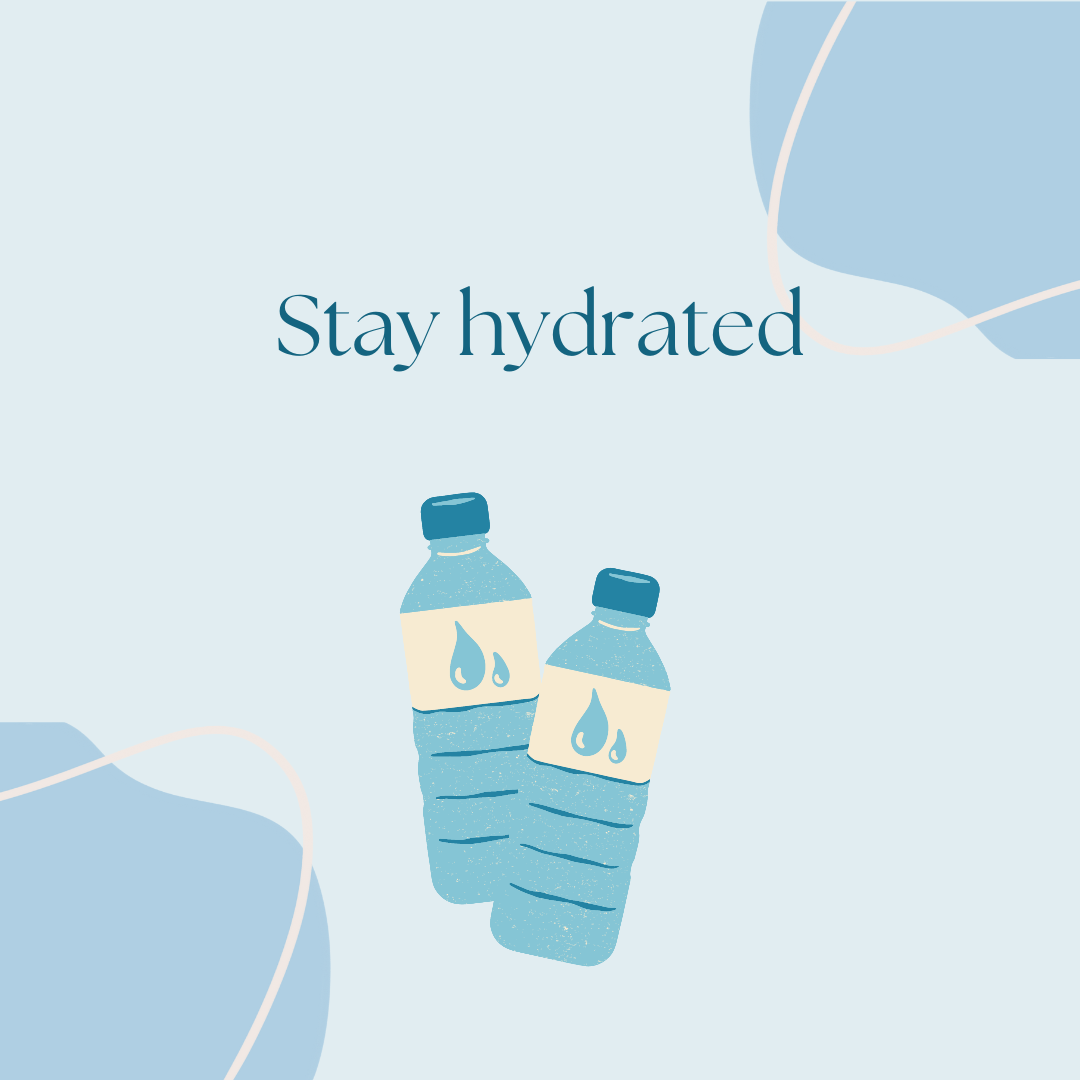THE IMPORTANCE OF STAYING HYDRATED!
What exactly is dehydration? Quite simply, your body does not have enough supply of water to enable your systems to function properly. The human body is made up of 78% water, the brain and heart are 73%, while the lungs are at 83%. (Cleveland Clinic) These statistics clearly show the vital importance of staying hydrated.
As we age, fluid levels tend to decrease so a higher level of water intake, along with a diet that includes fruits and vegetables, is advised. It’s best to avoid alcohol, caffeine and carbonated drinks as they work counter to hydrating.
Certain health conditions and medications may also play a role, causing even minor illnesses to deplete the water reserve. For seniors, lack of fluid can create difficulties such as constipation, loss of balance and kidney problems, to name a few.
How can you tell if you are dehydrated? The symptoms referenced below may be mild, moderate or severe, depending on how much water your body is lacking – not all may be present:
-Thirst -Dry mouth or dry cough
-Less frequent urination -Dark-colored urine
-Tiredness/fatigue -Lightheadedness
-Confusion -Nausea
-Headache -Muscle cramps
For most adults with mild to moderate dehydration, cool water is a good place to start. Drinks containing electrolytes may also be helpful. However, if you are experiencing diarrhea, full-strength fruit juice or soft drinks may worsen it.
Severe dehydration requires immediate medical attention to avoid serious problems.
For further information, visit Dehydration: Symptoms & Causes (clevelandclinic.org)

